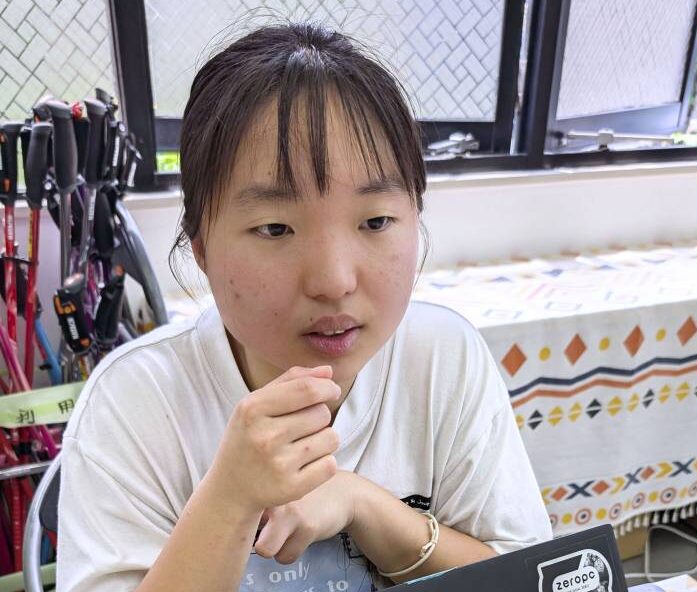Scholarship giving undocumented high schoolers leg up on life in Japan

A private scholarship program is providing support for high school students without residency status in Japan, ensuring they do not abandon their dreams of further education and employment.
While children of undocumented residents are eligible for school assistance through junior high, government support ends once they reach high school. When assistance is lost, and especially if the parents do not have the right to work in Japan, the families’ financial difficulties are exacerbated, sometimes driving them into poverty.
Nonprofit organizations like the Solidarity Network with Migrants Japan and the Anti-Poverty Network engage in activities designed to ensure the children do not become isolated due to their families’ plight.
In August, a university student tutor visited the home of a 16-year-old female high school student who hails from a Middle Eastern nation and now resides in the Kanto region of eastern Japan.
The tutor handed over a 10,000-yen grant under the scholarship program—enough to cover one month of tuition at the student’s public high school—and asked her about her current situation.
Fled persecution
The high school student’s parents fled persecution under a dictatorial regime and brought the family to Japan seven years ago.
They applied for refugee status with the right to work, but three years ago were placed under “provisional release” status, or the temporary suspension of detention while awaiting deportation, and stripped of their employment rights.
Last year, they shifted to “supervised release” status created under the 2023 revision of the Immigration Control and Refugee Recognition Act, which allows certain individuals awaiting deportation orders to work under the guidance of an Immigration Bureau-designated supervisor.
Yet, even with this, the family has been unable to find work.
Despite these hardships, the girl holds onto her passion for drawing.
“My dream is to become a fashion designer. I want to go to a vocational school, but I’m unsure if it’s possible,” she said.
Financial struggles have already forced her to miss school trips, with moments like this reducing her to tears.
Eiken Test
Her 18-year-old tutor encouraged her to prepare for foreign language certification examinations such as the Eiken Test in Practical English Proficiency and the Japanese Language Proficiency Test to broaden her opportunities.
The scholarship initiative was launched in 2023 by the Solidarity Network with Migrants Japan and the Anti-Poverty Network.
Beyond financial aid, the project also helps students navigate the invisible barriers they face.
Miwa Kato, a 22-year-old tutor, explained that some people have had school admissions or job offers rescinded despite meeting high school graduation requirements.
“It’s difficult for high school students to secure advance confirmations or explain their situations in writing,” she said. “We practice how to communicate with others so that they’re not left out.”
The program’s future, however, is uncertain. “Since all of our funding comes from donations, we don’t know how long we can sustain this,” Kato admitted. Still, she remains determined, saying, “Children need support so their options aren’t unfairly limited.”
According to Nanako Inaba, professor at Sophia University and director of the Anti-Poverty Network, securing admission to a university or vocational school can sometimes open a pathway to a “study abroad” visa. Yet the barriers remain daunting.
Inaba stresses that the issue is not only practical, but also a matter of rights.
The United Nations Convention on the Rights of the Child, which Japan has ratified, clearly states that children must be given opportunities for higher education, she noted.
“Many of these children were born here or arrived at a young age. Their lives are rooted in Japan. For those who graduate high school here, the government should guarantee their rights, including considering creating pathways to (permanent) residency.”

















